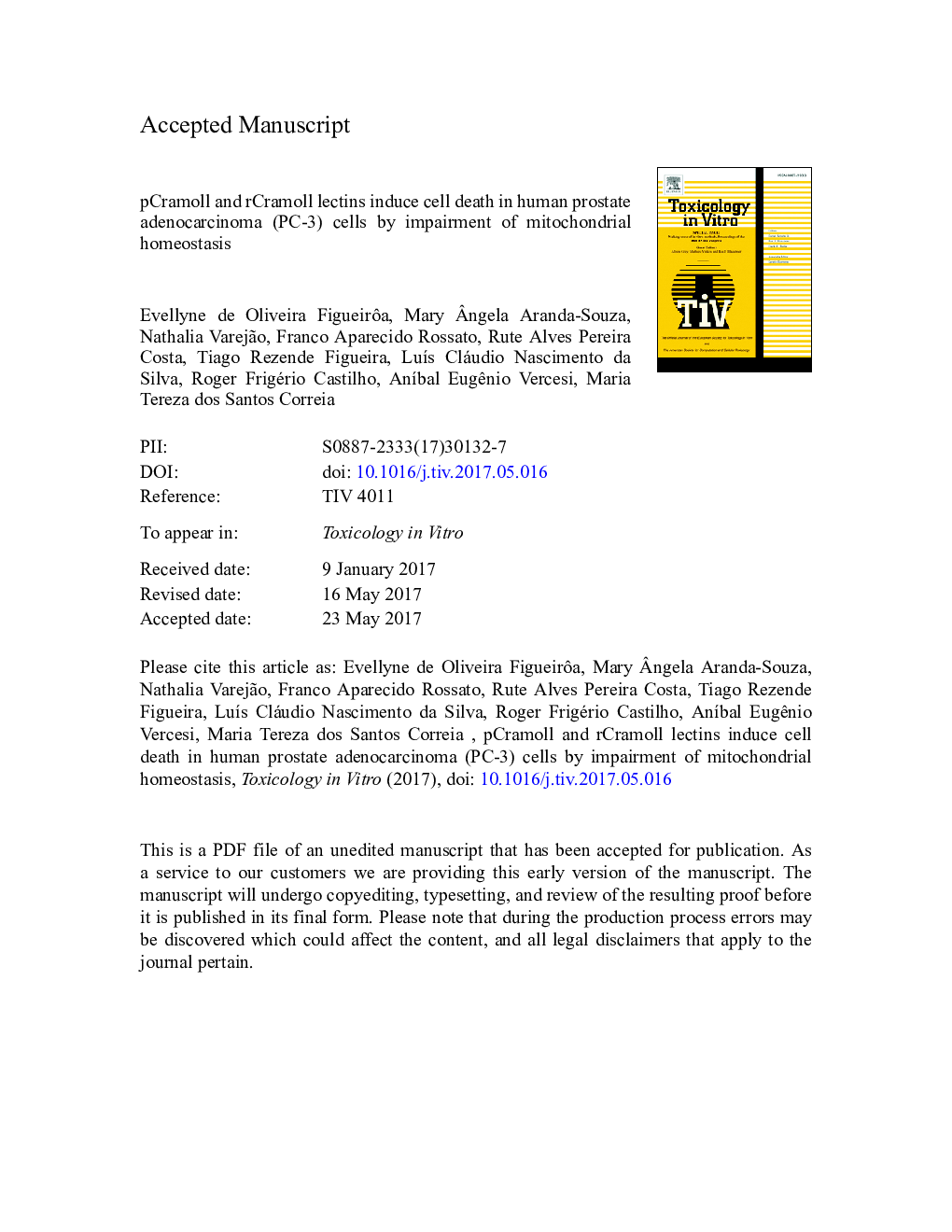| Article ID | Journal | Published Year | Pages | File Type |
|---|---|---|---|---|
| 5562577 | Toxicology in Vitro | 2017 | 30 Pages |
Abstract
Lectins from Cratylia mollis seed have shown potential in vivo antitumor actions, however the mechanism have not yet been addressed. Here we evaluated the antitumor effects of native (pCramoll) and recombinant (rCramoll) lectins from C. mollis against human prostate adenocarcinoma (PC-3) cells. The viability of PC-3 cells was analyzed with the MTT assay and ANNEXIN V/propidium iodide staining. The actions of pCramoll or rCramoll on mitochondrial superoxide production, free cytosolic calcium concentration and mitochondrial membrane potential were evaluated using fluorescent probes (MitoSox Red, Fura 2-AM and safranin O, respectively). pCramoll and rCramoll reduced the viability of PC-3 cells in a dose-dependent manner. Both lectins increased the generation of mitochondrial superoxide as well as the concentration of cytosolic calcium. These changes led to a decrease in oxidative phosphorylation, which impaired the formation of ATP. The resulting cell death was not blocked by MPT (mitochondrial permeability transition) inhibitors (Debio 025 or bongkrekic acid). Thus pCramoll and rCramoll promote PC-3 cell death through calcium signaling, leading to mitochondrial collapse. This work provides more insights into the action of pCramoll and rCramoll against cancer cells. These lectins represent valuable tools for biomedical research.
Related Topics
Life Sciences
Environmental Science
Health, Toxicology and Mutagenesis
Authors
Evellyne de Oliveira Figueirôa, Mary Ãngela Aranda-Souza, Nathalia Varejão, Franco Aparecido Rossato, Rute Alves Pereira Costa, Tiago Rezende Figueira, LuÃs Cláudio Nascimento da Silva, Roger Frigério Castilho, AnÃbal Eugênio Vercesi,
